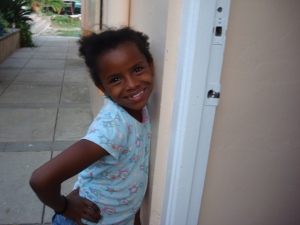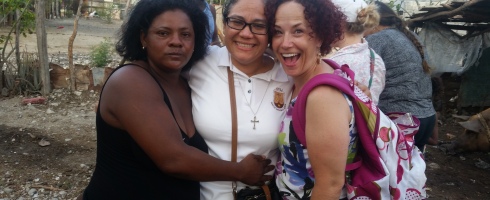First Things First
Learn these must know phrases – you can do it
To know how the words will sound, go to http://translate.google.com/ type in the word, and press the “listen” icon.
- Please/por favor
- Thank you/gracias
- Greetings – Buenos días (day), Buenas tardes (afternoon until dinner), Buenas noches (night), Hola
- My name is/me llamo <name>
- What is your name?/Como se llama usted?
- Nice to meet you/ mucho gusto
Learn the English words that work in Spanish, too. These are called Cognates. For a complete list, see http://spanishcognates.org/
color- color, hurricane – huracán, artist – artista, tropical – tropical, photo – foto, alone – solo, no – no, OK, Cola – Kola

Figure out what Spanish words and phrases you already know.
Si, No, Hasta la vista (baby), Hola, Adios, Rio, Camino, Sombrero, Amiga (Amigo), Mucho, Macho, Queso, Salsa, Cinco de Mayo, Huervos Rancheros, agua, casa, “Yo quiero” (“I want” Taco Bell), vamanos! (from Dora the Explorer), la cucaracha, feliz navidad, que sera sera, Mi casa es su casa, no problema, (living) La Vida Loca, Oye como va ( means “Hey, what’s up?” song by Santana http://www.youtube.com/watch?v=DoIqXz2AIFs), Andale (Speedy Gonazalez), si se puede, fiesta, siesta… thank you http://forums.welltrainedmind.com/topic/181533-pls-help-me-brainstorm-spanish-phrases-in-popular-culture-like-yo-quiero-taco-bell/ and others
To get used to hearing Spanish
Try duolingo a free app on your smartphone, listen toSantana, Jennifer Lopez or other Latin American acts that incorporate Spanish phrases into the songs, read the Cheerios bilingual books or other bilingual children’s books, watch Dora the Explorer or her cousin Diego on PBS.
The Activities
Here are the things you can do at Camp with limited to no Spanish knowledge.
“This year the older girls had me read both the Spanish and English and wanted to hear how the spoken word matched what the English word looked like… We all enjoyed the quiet and relaxed time together.” Deb
Interact by being together, silently communicating:
Smile, hug, sit next to someone who is alone, take pictures “una photo”, point or do charades to describe what you want. An example of charades that work is make “scissors” with your hands and say “por favor?” Or act out writing to ask for a pencil. Show pictures of your family.



Play with them
Catch, kickball, duck duck grey-duck (goose the the rest of the world), volleyball, basketball, jump rope, dominoes, cards, games, do puzzles, make a necklace or a bracelet, dance, math games with cards, dice, and dominoes, make patterns with beads,




Learn some Spanish
Ask them how to count by lining up cards or dominoes with the numbers. Ask the littlest girl, what is this? Count together from one to ten.
Ask them colors by using or making flash cards with the colors and having them tell you roja, azul, etc.
Boldly try to copy the girls as they teach you.
Keep your Spanish/English dictionary and/or phrase book with you.
Write the words and phrases you’ve learned in your journal to reinforce what you learned. This comes in handy with commonly used phrases (camp or hogar commonly, they wouldn’t show up on other lists of common phrases. My example is ¿Quién falta?” “Who’s missing?” ( from dinner, from the minivan, from class).

Teach some English
Do the above (Learn Spanish) activities with them, but you tell them the English word for the color or number.
Find out what the girls are learning at the English station and practice with them after the station.
Ask a girl to read the English in a bilingual book to you.
Help Camp run smoothly
Keep everyone on schedule, lead the travelers’ evening reflection and meeting, demonstrate a craft, organize our supply room,
Practice acceptance
Accept the fact that you will not have the same experience as proficient Spanish speakers. That is OK. Your experience is valuable, valid and meaningful. Figure out how to appreciate that.
“We can do no great things, only small things with great love.” Mother Teresa
I’d appreciate your feedback/comments, especially in the “Spanish words you know” section, ideas for learning Spanish, or anything else, really.
Thank you!
Ann
P.S. Here are some resources to learn more Spanish online and free.
http://www.studyspanish.com – this includes a quiz generator, so you can study a little, then see how much you’ve retained.
DuoLingo app for iPhone and Android – I *love* the video game format of this. I’ve never seen Rosetta, but I guess it’s very similar and free.
“Coffee Break Spanish” for Podcasts – this was my first resource I spent any time with. I listen to these podcasts when walking or running. Even if it doesn’t advance your speaking, I believe it helped with my understanding the spoken language.















